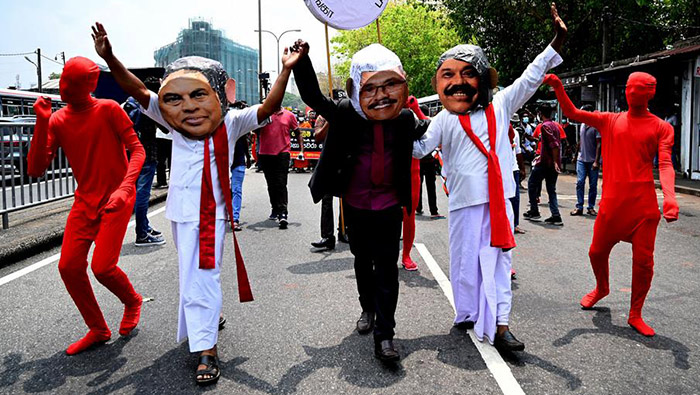
Colombo: Sri Lanka's President Gotabaya Rajapaksa appointed a new Cabinet on Monday in a move seen as an attempt to pacify ongoing protests that have called for his resignation.
The president removed two of his brothers and a nephew from the Cabinet, but kept his older brother, Mahinda Rajapaksa, as prime minister.
The Cabinet resigned en masse on April 3, after protesters targeted the homes of certain ministers.
The political crisis was sparked by rising costs of essential goods which many put down to mishandling by the government — especially the president and his powerful family.
Basil Rajapaksa, the former finance minister and Gotabaya's younger brother, as well as the president's eldest brother Chamal, did not make the cut for the new 21-member Cabinet — which has seven fewer members than the previous one.
Namal Rajapaksa, the eldest son of the prime minister, and thus the nephew of the president, was also left out. He had been touted as a possible future leader.
Sri Lankan ministers are provided with SUVs, unlimited fuel, a team of bodyguards and free housing, as well as an allowance for entertainment.
Protesters have expressed anger at the nepotism and corruption they say is rampant in the government. The Rajapaksa clan has held onto power for the past two decades.
Opposition parties have rejected an offer to form a coalition unity government, but do not control enough seats to force a change of power.
Sri Lanka's financial and economic crisis
Sri Lanka is on the brink of bankruptcy and a lack of foreign currency reserves means that importing foreign goods has become very difficult.
Inflation has also reached a record high and the financial problems are compounding economic woes as a lack of imported fuel has led to countrywide blackouts.
The government has been preparing for talks with the International Monetary Fund (IMF) to discuss acquiring a bailout for the country's foreign debt of $51 billion (€47.25 billion).
The country announced a default on that debt last week and is seeking $3 to $4 billion to sort out its balance-of-payments problem and to acquire foreign currency reserves again.